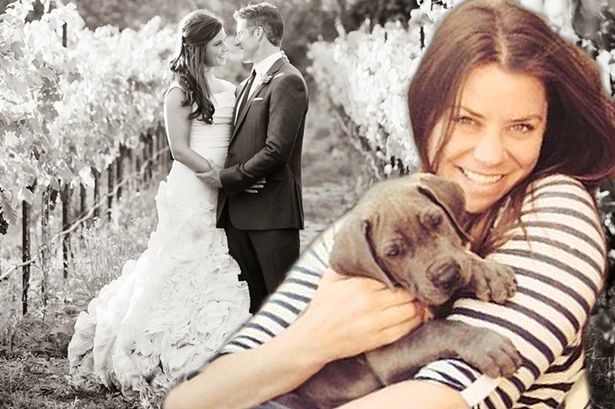Should Terminal Patients Like Brittany Maynard Kill Themselves?
Posted on November 12, 2014 in Life by Nathan Cherry
 At 29 years old Brittany Maynard was given a terminal diagnosis. The brain cancer was terminal and in April she was given 6 months to live. Maynard then decided to her family to Oregon to take advantage of the state’s right-to-die law; which allows a person to take lethal medication to end her life “with dignity.”
At 29 years old Brittany Maynard was given a terminal diagnosis. The brain cancer was terminal and in April she was given 6 months to live. Maynard then decided to her family to Oregon to take advantage of the state’s right-to-die law; which allows a person to take lethal medication to end her life “with dignity.”
Maynard decided to end her life on November 1. After much media attention and national pleading she seemed to change her mind. But then news spread across the nation on Sunday, November 2 that Brittany had taken her life.
Maynard and others want to “die with dignity, on my terms, my time, my way.”
But I have a problem with this use of speech.
The problem is that they give the impression that only those who die in this way accomplish dying with dignity. But what about the soldier that loses his life protecting freedom and other people? Did he not die with dignity? I’m sure he didn’t die on his terms, his time, and in his way. I’m certain people don’t generally choose to die by a bullet or because of a bomb. So do our soldiers not die with dignity?
There’s an inherent idea within the “die-with-dignity” view that says only by killing oneself can a person truly die with dignity. The problem is that such language and ideas actually devalue a human life. This idea says that people choosing to endure an illness, disability, or other condition that leaves them not fully functioning have no dignity. So the cancer patient that endures that terrible disease with grace is viewed as needlessly suffering when she could simply end her own life.
Where’s the dignity in that? Where’s the inherent dignity in each person by virtue of our humanity that gives us not just the right, but the will to endure all that life gives us with natural grace and dignity? A recent article at LifeNews asks us to consider “what else will be classified as undignified?”
“What about the quadriplegic? What about the man suffering from an epileptic seizure, the woman giving birth? What about the disabled adult who wears diapers her whole life? What about the mentally disabled teen who will never be able to read or write? What about the old man shaking always from Parkinson’s, the old woman whose speech and memory are gone from Alzheimer’s? What about the depressed man who can barely function? What about the schizophrenic woman?”
We are forced to answer whether or not people enduring such conditions are doing so with dignity. Is dignity different for every person? Or is there inherent dignity in every person that requires certain actions in the face of adversity?
In other words, is surrendering consistent with courage? Is running away consistent with bravery? Just as courage and bravery require certain actions of us, so too does dignity. So, is ending my life in the face of illness consistent with dignity?
According to many in the pro-assisted suicide movement, yes, it is. But they overlook (or ignore) the inherent dignity in each person that should propel us to live courageously and bravely in the face of adversity. Maynard recently wrote of her decision:
“Today is the day I have chosen to pass away with dignity in the face of my terminal illness, this terrible brain cancer that has taken so much from me … but would have taken so much more…I’ve discussed with many experts how I would die from it [brain cancer] and it’s a terrible, terrible way to die. So being able to choose to go with dignity is less terrifying.”
Even in her own words Maynard shows the deceptiveness of the assisted-suicide movement. We don’t generally talk of people that commit suicide as doing so with dignity. Yet, somehow those constraints placed on that conversation are thrown off when the person has a terminal illness. Somehow being terminally ill changes the boundaries and makes suicide a plausible, even dignified, option.
The rhetoric of abortion, euthanasia, assisted-suicide, “death with dignity” – whatever title it takes – has fooled many people into believing they are of no worth if they are not a high functioning, contributing member of society. Consequently, the unborn are viewed as a punishment, the disabled are viewed as a burden, the aged are viewed as a problem, and the terminally ill are viewed as selfish and undignified for wanting to live. The culture of death is claiming more victims.
Brittany Maynard was an unwitting hero of the assisted0suicide movement. Perhaps she knew it. Perhaps she simply wanted people to know her before she died. Whatever her reasons for taking her life I feel sorry for her. It seems she was misappropriated and used by a group that only seeks to take human life. And her story will become the champion of their movement. If that’s her lasting legacy, I feel sorry for her.
Maynard’s story should not push us further in the direction of assisted-suicide but away from it. The take away here is that every life, from beginning to natural end should be protected, defended, and encouraged. Every person should know that she is valuable and filled with an inherent worth and dignity that not even a terminal illness can remove.
